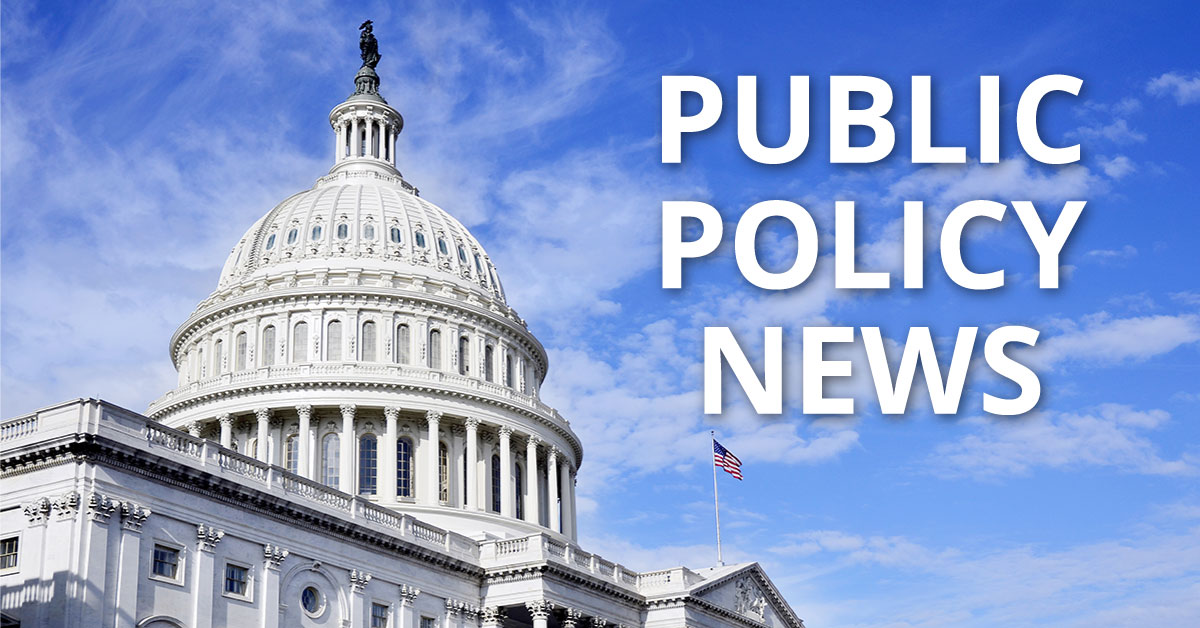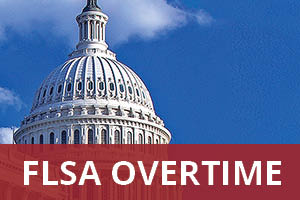by CUPA-HR | January 11, 2024
December was a busy month for immigration-related developments, with several important updates that have implications for the higher education sector. In this post, we provide highlights of the actions that took place last month.
CUPA-HR Joins Comments to DHS on H-1B Modernization NPRM
On December 22, 2023, CUPA-HR and 19 other higher education associations joined comments led by the American Council on Education (ACE) in response to the Department of Homeland Security’s (DHS) H-1B Modernization Proposal. Additionally, CUPA-HR joined 73 organizations from the higher education, state and local economic development, business, science, and policy sectors to submit a comment in response to the H-1B Notice of Proposed Rulemaking’s (NPRM) proposed definition for specialty occupations.
The ACE-led letter expresses support for several of the proposed changes. These include the change to a beneficiary-centric lottery system, codifying DHS policy of deference to prior adjudications of Form I-129 petitions, clarifying the term “normally” in specialty occupation criteria, and implementing an automatic extension for CAP-GAP. (CAP-GAP is the time between the official end-date of an F-1 student visa and the start date of the H-1B visa). However, the letter also expresses concerns about proposed changes to the definition of a “specialty occupation” and “specific specialty requirement” in the H-1B visa program. The concerns highlight the potential limitation on the ability to attract diverse candidates for faculty positions and the narrowing pipeline for growth in high-technology fields, which could deter foreign students and hinder research and innovation in the United States. The letter calls for a reconsideration of these proposed changes to ensure that H-1B visa regulations align with the evolving dynamics of professional education and the modern workforce.
In the multi-sector comment letter, CUPA-HR joined voices to address concerns over the H-1B NPRM’s proposed redefinition of “specialty occupations.” This diverse coalition raised issues about the potential negative impacts of these changes on interdisciplinary hiring, particularly in emerging science and technology fields. They argued that the new requirements, like the need for a degree to be “directly related” to job duties, could limit U.S. competitiveness in global innovation and create challenges for employers.
Now that the comment period has concluded, the DHS will begin the process of reviewing the feedback received. As the department moves toward finalizing the proposals within this rulemaking, they may issue one or more final rules, depending on the availability of agency resources. CUPA-HR will continue to closely monitor these developments and keep its members informed of all significant updates and outcomes.
State Department Announces Extension and Expansion of the Nonimmigrant Visa Interview Waiver Program
On December 21, 2023, the Department of State (DOS) determined that, in consultation with DHS, certain categories of interview waivers are in the national interest. As a result, consular officers will continue to have the authority and discretion to waive an in-person interview for certain categories of nonimmigrant visa cases, with some changes made by DOS.
This update includes the following key changes.
- First-time H-2 Visa Applicants: Temporary agricultural and non-agricultural workers applying for H-2 visas are now eligible for an interview waiver.
- Extended Eligibility for Other Visa Applicants: The waiver also applies to applicants for any nonimmigrant visa classification who have previously been issued a visa other than a B visa and are reapplying within 48 months of their last visa’s expiration.
- Renewal Policy Unchanged: Applicants renewing their nonimmigrant visa in the same classification within 48 months of the prior visa’s expiration date continue to be eligible for the interview waiver.
The department’s previous interview waiver eligibility criteria were set to expire on December 31, 2023. Not only has the program been extended as of January 1, but it now also includes more nonimmigrant categories. Notably, the current guidance is intended to remain in place indefinitely, as no expiration date has been specified.
DOL Issues Request for Information on PERM Schedule A Revisions
On December 21, 2023, in alignment with President Biden’s Executive Order 14110 on Artificial Intelligence, the Department of Labor’s (DOL) Employment and Training Administration (ETA) issued a Request for Information (RFI) that aims to gather public feedback on potential updates to Schedule A job classifications that exempt certain roles from the standard labor certification requirements. Specifically, the DOL is exploring the inclusion of AI, other STEM-related occupations, and additional fields where there is a notable shortage of qualified U.S. workers.
According to the Immigration and Nationality Act’s labor certification provisions, employers are obligated to demonstrate that there are insufficient U.S. workers available and that hiring foreign nationals will not adversely affect the wages and working conditions of similar U.S. roles. This process is managed through the Program Electronic Review Management (PERM) system by the ETA. Employers seeking labor certification for prospective permanent immigrant workers must navigate a complex and time-consuming process, often extending the immigration timeline.
Schedule A, established by the DOL in the mid-1960s, pre-certifies occupations experiencing national labor shortages, thereby waiving the labor certification requirement for these roles. Currently, Schedule A is divided into two groups: Group I comprises physical therapists and professional nurses, and Group II includes occupations that require exceptional ability in the sciences, arts, or performing arts. With this RFI, the DOL aims to critically examine and potentially broaden Schedule A’s scope, a move that could accelerate the hiring of essential foreign talent by aligning with evolving labor market demands and streamlining the employment authorization process.
Key areas where the department seeks input include the following.
- Identifying Labor Shortages in STEM: The department invites suggestions on the most appropriate data sources and methods to ascertain whether there are labor shortages in STEM occupations. They are interested in understanding if Schedule A should be utilized to mitigate these shortages and how to develop a reliable, objective, and transparent method to identify STEM occupations facing labor shortages.
- Scope of STEM Occupations: There’s a need for input on whether the examination of STEM occupations should be limited to those outlined in the Occupational Employment and Wage Statistics and recent Bureau of Labor Statistics publications, or whether it should be broadened to include additional occupations, particularly those covering Skilled Technical Work occupations.
- Inclusion of Non-STEM Occupations: The department is also open to suggestions on whether non-STEM occupations facing worker shortages should be added to Schedule A. Input is sought on how to determine such shortages and ensure that the employment of foreign workers in these roles does not negatively impact U.S. workers.
Comments in response to the RFI are due on February 20, 2024.
U.S. Department of State Announces Pilot Program for Domestic Renewal of H-1B Visas
On December 21, 2023, DOS announced a pilot program to resume domestic visa renewal for H-1B nonimmigrant visa applicants who meet certain requirements. It offers eligible H-1B visa holders the chance to renew their visas within the U.S., bypassing the need for an in-person interview at a consulate or embassy. DOS will start accepting online applications for the H-1B visa renewal pilot program on January 29, 2024.
Eligibility for the U.S. Department of State’s H-1B visa renewal pilot program is defined by a set of specific criteria:
- Visa Classification and Issuance: The program is strictly for those looking to renew an H-1B visa. Eligible visas must have been issued by Mission Canada (from January 1, 2020, to April 1, 2023) or Mission India (from February 1, 2021, to September 30, 2021).
- Fee and Interview Requirements: Applicants should not be subject to a nonimmigrant visa issuance fee, often referred to as a “reciprocity fee,” and must be eligible for a waiver of the in-person interview.
- Biometric and Visa Status: Participants must have previously submitted ten fingerprints for a visa application, and their prior visa should not include a “clearance received” annotation. Additionally, they must not have any visa ineligibilities requiring a waiver.
- Petition and Status Maintenance: It’s essential that applicants have an approved, unexpired H-1B petition, are currently maintaining H-1B status in the U.S., and their period of authorized admission in this status has not expired.
- Travel and Reentry Intent: Applicants must have been last admitted to the U.S. in H-1B status and intend to reenter the U.S. in the same status after temporary travel abroad.
Background and Objectives. The pilot is a response to the discontinuation of domestic non-diplomatic visa renewals in 2004 due to the requirement for biometric identifiers. With advancements in technology, the DOS is now looking to assess its capacity to handle domestic renewals and reduce global visa application backlogs. This pilot is particularly aimed at alleviating uncertainties for U.S. companies employing temporary H-1B workers.
Application Process:
- Application Portal: U.S. Visa Employment Domestic Renewal.
- Slot Allocation: Approximately 4,000 slots will be available weekly, split between applicants with visas issued by Mission Canada and Mission India.
- Application Dates: January 29, February 5, 12, 19, and 26. The portal will close temporarily once weekly caps are reached.
- Application Window: The program will close on April 1, 2024, or when all slots are filled, whichever is earlier.
Currently, the program excludes categories like H-4 visas. The DOS plans to extend the program to more visa types in the future, but for now, it’s limited to H-1B principal applicants meeting the specified criteria.
Share This Article:







